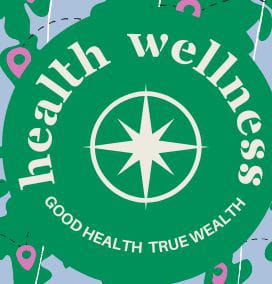How make balanced diet tips ? It is very important for your overall health and well-being to follow a healthy diet. A balanced diet will provide your body with the nutrients, vitamins, and minerals it needs to work properly, while also ensuring continued energy, improved immunity, and protection from diseases. In this article, we will discuss the best tips on creating a balanced diet to help you lead a healthy lifestyle.
What does it mean to eat a balanced diet? A balanced diet is comprised of food from a variety of food groups to ensure that essential nutrients are given in the correct amounts. Carbohydrates, Proteins, Healthy fats, Vitamins, Minerals, and Fiver make up the six essential groups that make up a well balanced diet. Along with a good diet, hydration and controlled caloric intake for the individual to maintain a healthy body weight is also preferred.
Techniques for Balanced Diet How make balanced diet tips ? 1. Eat Variety of Nutrients . A balanced diet should provide you with different food groups in order to consume essential nutrients. . This includes: Carbohydrates: . Whole grains, brown rice and quinoa for energy. Proteins: . Lean meats, fish, eggs, dairy and plant sources such as lentils and beans. Healthy fats: . Nuts, seeds, olive oil and avocados for brain health. . Vitamins and minerals: . Whole foods to aid digestion and prevent constipation. 2. Eat Appropriate Portions . Consuming large portion sizes can result in weight gain and eating too little may not provide the nutrients your body needs. . An ideal portion size mix is as follows: . Half the plate – . Vegetables and fruits One quarter the plate – . Protein One quarter the plate – . Whole grains Small portion – Healthy fats 3. Drink Enough Water . Water is also necessary for proper digestion, metabolism and detoxifying your body. . It is recommend that adults drink at least 8-10 glasses of water daily. . Herbal teas, fresh fruit juices and coconut water can also support hydration. 4. Limit Processed and Sugary Foods . Eating too much processed food and added sugars can result in higher rates of obesity, diabetes and heart disease. . You should limit eating things like: . Sodas Foods from fast food restaurants Processed snacks (chips, cookies, etc.) Artificial sweeteners
5. Meal Preparation in . Advance Preparing meals in advance establishes healthier options and reduces the likelihood of indulging in unhealthy snacks. . A few meal preparation options are as follows: . Open up and utilise fresh ingredients to prepare meals. . Cook in your kitchen to control ingredients and portion size. . Keep healthy snacks on hand to provide a quick energy boost, such as nuts or fruit. 6. Micro nutrition Balance . Food for energy should be made up of a proper balance of micro nutrients, suggested intake is as follows:Carbohydrates: . 45-65% of food consumption a day for energy . . Probiotics: 10-35% each day to serve as building blocks for tissue or muscles and helping with recovery. . Fats: 20-35% of intake each day for hormone production and the overall proper function of cells in the body. 7. Eating at Regular Intervals . Eating sometimes leads to overeating, triggering significant weight gain, possible changes to digestion, bad habits, etc. . Good options are to:Eat approximately three, balanced meals a day, and possibly add a couple of smaller snacks. . Skipping meals leads to overeating and possibly an upset stomach, so eat well in the first part of the day, but remember to eat too late into the evening. . Eating too late into the evening will lead to food not sufficiently digested the next day. 8. Gut Health . Ensuring gut health is integral to overall health and body improvement. . As an exercise to encourage digestion, the gut should include: . Probiotics: . yogurt, kefir (fermented foods). . Prebiotics: . Bananas, onions, garlic. . Fiver binder foods: . Oats, legumes, whole grains.
9. Control Salt and Sodium Intake . Extra salt raises blood pressure and risk of heart disease. . To reduce the amount of sodium, you can: . Use herbs and spices instead of salt to season foods. . Avoid canned and packaged foods. . Read the sodium content on food labels. 10. Have a Positive Relationship with Food . Cultivating a positive relationship with food will inspire healthier choices. . Some ways to develop your relationship with food include: . Being mindful of what you eat by eating slowly and savoring the taste of your food. . Avoiding eating for emotional reasons by knowing when you are actually hungry. . Enjoying the occasional sweet treat in good measure. 11. Get Quality Sleep and Exercise . Diet alone is not enough for a healthy lifestyle. . In addition to a healthy diet, it is important to: . Exercise at least 30 minutes a day. . Sleep a quality 7-9 hours a night. . Practice meditation and stress reducing relaxation techniques. 12. Modify Your Diet to Fit Your Lifestyle Diets vary according to individuals, depending on their age, activity level, and health status. For example: . Children will need more calcium and protein to sustain growth. . Pregnant women need more iron and folic acid. . Older people are better off eating nutrient dense foods for bone and muscle health.
Conclusion Eating a balanced diet is an important part of a healthier and happier life. A balanced diet will consist of lots of nutrients, portion control, hydration, and of course, you have to use your conscious mind to make the right decisions. Following these practical steps will help to improve your overall health, guarantee long-term health, and limit the occurrence of lifestyle disease. Make a conscious decision today to eat healthier for a healthier tomorrow!





